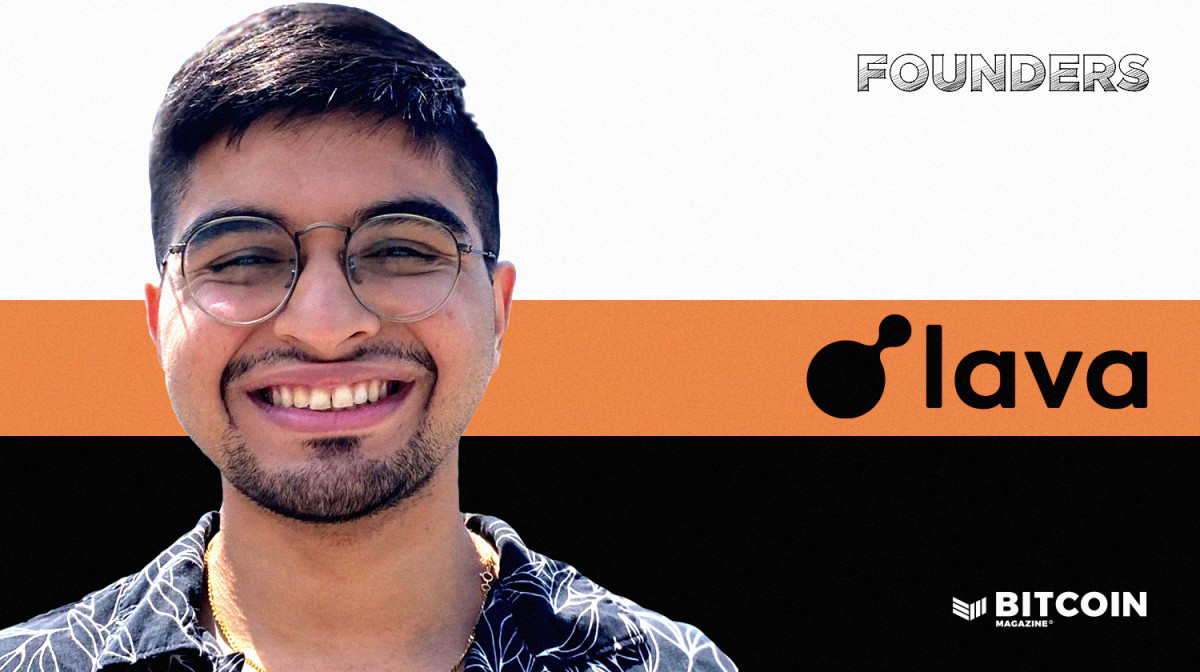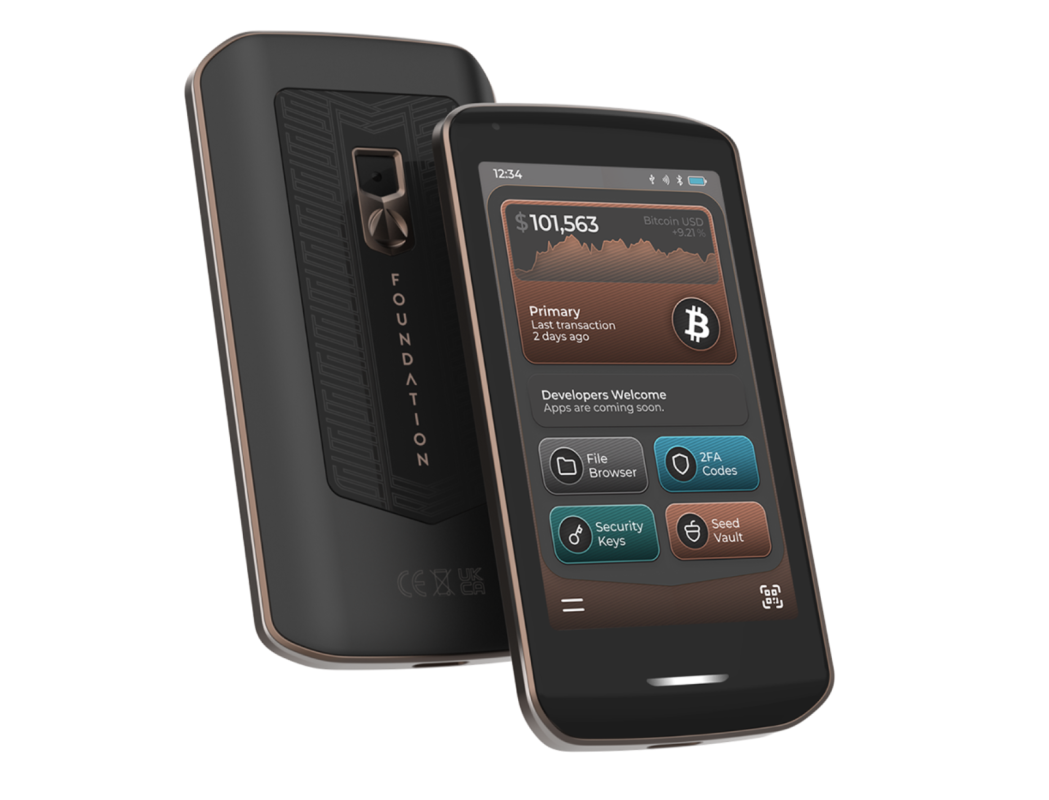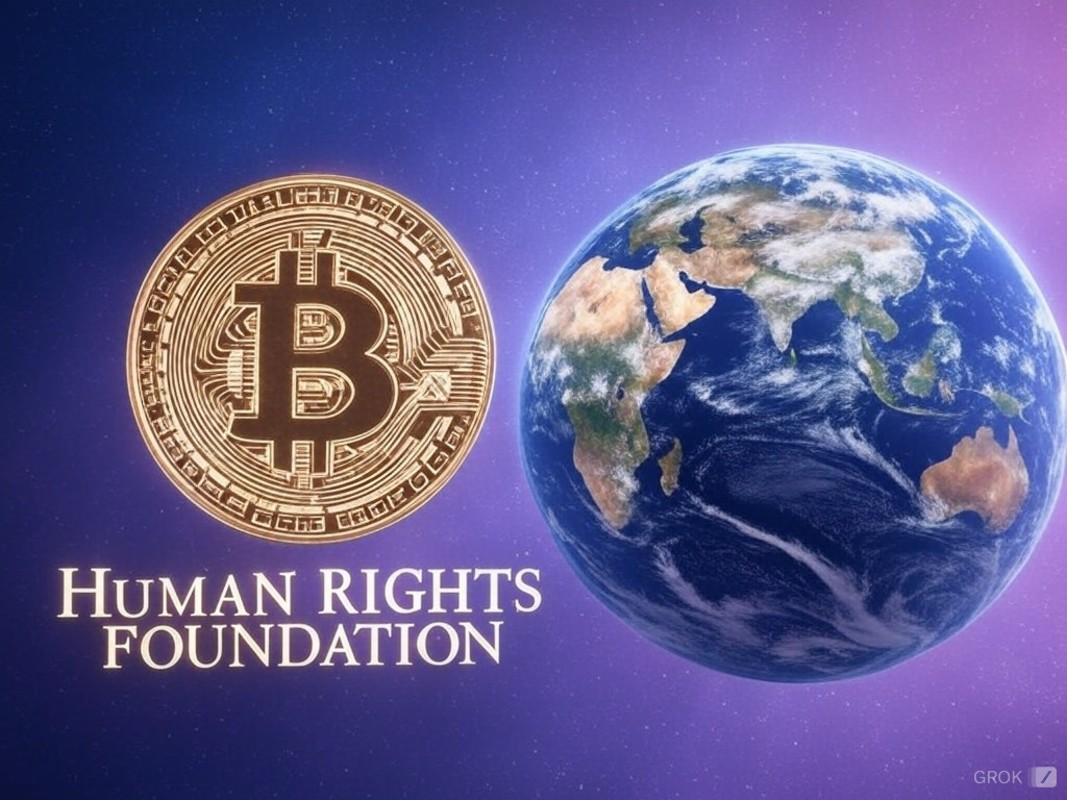business
Seedless Keys And DLCs: How Lava Is Making Bitcoin Custody Easy
Published
5 months agoon
By
admin

Company Name: Lava
Founders: Shehzan Maredia
Date Founded: January 2022
Location of Headquarters: New York, USA (with some remote employees)
Amount of Bitcoin Held in Treasury: N/A
Number of Employees: 7
Website: https://www.lava.xyz/
Public or Private? Private
Shehzan Maredia wants to make custodying Bitcoin easy.
This is why he founded Lava, an app that he and his team have created that allows users to purchase bitcoin, transact with both bitcoin and stablecoins globally and now hold their bitcoin in self-custody without having to write down a seed phrase.
Maredia is one of a growing list of entrepreneurs in the Bitcoin space who believes that seed phrases — lists of 12 to 24 words used to recover funds from lost or stolen cryptocurrency wallets — are hindering mainstream adoption of bitcoin. He thinks that seedless alternatives to self-custody will help onboard the masses.
“I realized that seed phrases were a big barrier to adoption,” Maredia told Bitcoin Magazine, “and I went down the rabbit hole [to make] something better.”
After months of R&D, Maredia developed a solution that’s now at the heart of the design of the Lava app: Lava Vault.
Lava Vault
After testing a number of different self-custody setups, Maredia and his team arrived at a unique multisignature solution that became the backbone of the Lava Vault.
“We built this two-of-two recovery solution for self-custody where you can attach one part of the two-of-two to your cloud account and the other is a four digit PIN,” he explained.
Introducing the Lava Vault, the best self-custody app for people who want to save in bitcoin and spend in dollars without compromising on security.
free, instant, global payments
buy bitcoin with lowest fees available
secure your assets with seedless, 2-of-2 recovery pic.twitter.com/nEIYIHD6Dg— lava (@lava_xyz) July 16, 2024
“If I have your four digit PIN, I can’t steal your money because I don’t have access to your cloud account. If I have access to your cloud account, I don’t have your four digit PIN, and I can’t brute force it,” he added.
Maredia and the team at Lava call this design the Lava Smart Key, and they believe that it’s helping to provide simpler self-custody for those who otherwise might not want to take on the responsibility.
“We’ve actually seen a bunch of people using it that previously would have just bought bitcoin and kept it on Coinbase,” he said.
What is more, Lava Vault works seamlessly with Lava Exchange, another product Lava recently rolled out.
Lava Vault + Lava Exchange = Auto-Onboarding To Self-Custody
It’s often challenging for new Bitcoin users to tell the difference between a custodial wallet that an exchange provides and a self-custody wallet. It can be overwhelming for someone new to Bitcoin to go through the process of moving their bitcoins from an exchange wallet into self-custodial wallet, especially if the exchange offers both (e.g., Coinbase).
Lava removes this difficulty, though, as it allows users to purchase bitcoin within the app — at the best rate available — before automatically sending that bitcoin into self-custody.
“We have this exchange aggregator we’ve built,” said Maredia.
“If you want to buy bitcoin today, you have to figure out which exchange — Kraken, Coinbase. So, we work with a lot of them. We know what price they offer you based on your order, and we just route you to the best exchange through Lava,” he added.
Once users make their purchase, the bitcoin shows up in their Lava Vault.
“This is super useful if I’m trying to onboard users to self-custody,” said Maredia. “Now, I can tell them to download directly to self-custody, which largely increases the likelihood that they will continue to use self-custody.”
Once users have their bitcoin or stablecoins in self-custody via Lava, they can use either asset to make transactions permissionlessly with anyone in the world. And soon they will also be able to borrow dollars against their bitcoin without having to turn their bitcoin over to a third party.
Lava Loans
Maredia and the Lava team recently released a beta version of a new product called Lava Loans, which Maredia describes as a “self-custodial version of BlockFi.”
BlockFi, now defunct, was a platform that allowed users to use bitcoin as collateral for a loan. The main difference between a platform like BlockFi and Lava is that users had to give up custody of their bitcoin to BlockFi to use the service.
“Lava Loans is the first way to borrow against your bitcoin without giving it to a custodian or bridge,” said Maredia.
Maredia created this product because he both saw the demand for it and wanted something like this for himself.
“There’s a lot of Bitcoiners who don’t want to sell their bitcoin,” shared Maredia.
“I don’t want to sell my bitcoin either, because it’s appreciating. I’d rather borrow against it at a lower interest rate than it’s appreciating,” he added.
He also noticed that the other methods of borrowing against one’s bitcoin are both highly inefficient and expensive.
“There are billions of dollars of bitcoin-secured loans happening with custodians or with Wrapped Bitcoin (WBTC),” he explained.
“To get Wrapped Bitocin, you have to take your Bitcoin, KYC yourself, put it on an exchange, pay fees to mint it, pay a bunch of network fees to move it onto Ethereum and then once you’re done using Wrapped Bitcoin, move it back to your exchange, pay extra fees to unwrap your Bitcoin and move it back to self-custody. And you probably have tax obligations for wrapping your Bitcoin, too,” he added.
“I want to get these people using native bitcoin. We can increase the market size of people who are using actual bitcoin as collateral.”
Discreet Log Contracts (DLCs)
Lava Loans employs a specific type of smart contract on Bitcoin called Discreet Log Contracts (DLCs).
Maredia explained that DLCs are safer than the types of smart contracts often deployed on other major crypto networks.
“DLCs are interesting because you’re basically just using the Bitcoin layer one to lock your Bitcoin and release it under some predefined set of conditions,” he explained.
“[As opposed to] smart contracts on Ethereum or Solana that constantly keep getting hacked, DLCs are basically a bunch of pre-signed transactions that you encrypt. You almost get formal verification of your system by default, because you know that the money that’s locked in the smart contract between you and your counterparty can only be moved under this predefined set of conditions that you have verified,” he added.
“So, there’s a lot less technical risk versus writing arbitrary code deployed on the EVM that anyone can poke around with and exploit.”
Maredia also shared that the Lava team is composed of a number of engineers who contributed to early DLC standards.
“There’s probably like 10 people, a lot of which work at and contribute to Lava right now, who know about this tech,” explained Maredia, who also shared that the potential of DLCs has yet to be fully realized largely because of how new the technology is. “Not too many people know about [DLCs, but] that’s because the tech is early and we’re building it.”
Move Slowly And Safeguard Things
Unlike many in the crypto and broader tech space who take the “Move fast and break things” approach, Maredia and his team are analytical and thorough. They prefer to conduct research and test products rigorously before bringing them to market.
“We’ve been doing a lot of R&D over the last two years,” said Maredia.
“We were experimenting with lots of things. Even before we built Lava Smart Key, Lava Exchange and Lava Loans, we had been experimenting with a lot of different ways to do loans, to do self-custody security and to do on-ramp and off-ramp,” he added.
“This new self-custody security solution is a product of the last eight to ten months of experimentation.”
Maredia added that while Lava Loans is likely months away from going live, the beta version of the product has been functioning well and providing he and his team with important feedback.
“Everything’s coming together,” he concluded.
Lava is a portfolio company of UTXO Management, a regulated capital allocator focused on the digital assets industry. Bitcoin Magazine is owned by BTC Inc., which operates UTXO Management. UTXO invests in a variety of Bitcoin businesses, and maintains significant holdings in digital assets.
Source link
You may like


Can Shiba Inu Price Skyrocket 60% As Short-term SHIB Holders Capitulate?


The Year in NFTs: Bitcoin Ordinals Boom, Airdrop Craze, and Brands Come and Go


How To Buy Bitcoin During Bull Market Dips


PENGU price prediction | Is Pudgy Penguins a good investment?


Binance Peer To Delist XRP and Litecoin (LTC), But There’s A Catch


Bitcoin (BTC) Kimchi Premium Spikes as South Korea’s Political Turmoil Weighs on Won
business
Another Publicly Traded Firm Just Adopted a Bitcoin Reserve Strategy
Published
3 days agoon
December 24, 2024By
admin

Matador Technologies, a Canadian crypto firm, said Monday that it would begin leveraging Bitcoin as a treasury reserve asset, starting with a $4.5 million purchase later this month.
The little-known company has been developing a platform on top of Bitcoin’s network, which will enable users to one day purchase and trade digital representations of gold, according to a press release. The company previously said it’s targeting a launch of “early 2025” for said platform.
The company, formerly known as Scaling Capital 1, began trading on the TSX Venture Exchange last week under its new name. Since Matador’s debut last Tuesday, its stock price has fallen 35% from a closing price of $0.90 to $0.58, as of this writing.
Since software firm MicroStrategy began purchasing Bitcoin in 2020—ultimately amassing more than $41 billion worth as of this writing—major tech companies like Tesla have brought the asset onto their own balance sheets.
But with firms like Microsoft declining to take that route recently, many companies following in MicroStrategy’s footsteps have been relatively small. With a market capitalization of $49.5 million, Matador undoubtedly fits within that group.
Eventually, Matador plans on releasing a mobile application that lets users “buy, sell, and store gold 24/7,” according to a press release. But the company has said it plans to “build a significant portfolio of products” beyond the precious metal, according to its website.
Matador said Monday that its Bitcoin-buying endeavors were unanimously approved by the company’s board of directors. As part of the move, Matador said it would meanwhile shift the majority of its cash balances to the U.S. dollar, while ditching Canada’s official currency.
The Canadian firm said that it had assessed its platform’s viability on Ethereum and Solana, but Bitcoin was chosen for its secure and stable network at the end of the day. Matador added that physical gold reserves backing its digital representations will be held at the Royal Canadian Mint, a corporation owned solely by the Canadian government.
“Matador’s board and management believe in using Bitcoin to future-proof our treasury,” Matador President Sunny Ray said in a statement. “This step also supports our mission to explore using Bitcoin as a platform for our gold-based products.”
Among firms that have adopted Bitcoin this year, the Japanese investment firm Metaplanet has built up a $164 million stash since its first purchase in April, according to Bitcoin Treasuries. But there’s overlap between Metaplanet and Matador beyond Bitcoin and starting with the letter M.
BTC Inc., the parent company of Bitcoin Magazine, is known for hosting a popular line of Bitcoin conferences, but it also operates UTXO Management as its investment arm.
The company’s co-founder and managing partner, Tyler Evans, sits on Metaplanet’s board of directors. In a press release earlier this month, Matador said that Evans would serve on its board of directors as well.
Matador, Evans, and Metaplanet did not immediately respond to a request for comment from Decrypt.
Edited by Andrew Hayward
Daily Debrief Newsletter
Start every day with the top news stories right now, plus original features, a podcast, videos and more.
Source link
business
Foundation Introduces Passport Prime: Bitcoin Wallet And Data Security Device
Published
1 week agoon
December 20, 2024By
admin

On Wednesday, December 19, 2024, Foundation announced the release of its newest device, the Passport Prime.
Introducing Passport Prime – Your Personal Security Platform!
We’re thrilled to present Passport Prime, the world’s first personal security platform designed to secure your Bitcoin and your entire digital life.
Think: A Swiss Army Knife for your online security. pic.twitter.com/3HH2eG7vhU
— FOUNDATION (@FOUNDATIONdvcs) December 18, 2024
The device offers a broad range of features that not only help users secure the keys to their bitcoin but other digital information, as well.
Features
For starters, the Passport Prime offers the same bitcoin wallet capabilities as the company’s second generation Passport device, including multisig functionality and temporary seed phrases.
Beyond Bitcoin-related security, the Passport Prime also helps you to store other sensitive digital data.
Its 2FA Codes app lets users store 2FA codes offline, while its Security Keys app serves as a replacement for Yubikeys and allows users to create multiple security keys for use with NFC or USB.
What is more, the device offers an encrypted flash drive. Users can store up to 50 GB of data on the device. And as a means to keep your data private, the Airlock feature in the File Browser app lets users only access selected files when the device is plugged into a phone or computer.
The device also has its own custom operating system — KeyOS — which enables apps to run in their own sandboxes while the OS manages permissions.
Pushing The Hardware Wallet Industry Forward
Earlier this year, Foundation’s co-founder and CEO told Bitcoin Magazine he was looking to create the iPhone of Bitcoin hardware. The Passport Prime is the closest Foundation has come to this ideal yet.
“The hardware wallet industry has been coasting for years, failing to deliver any meaningful innovation and unable to respond to digital assets’ rapidly evolving utility and use cases,” said Zach Herbert, co-founder and CEO of Foundation in a press release.
“Wallets have become crypto’s weakest link: they are difficult to onboard to, complex to use, and increasingly insecure for a range of modern blockchain transactions,” he added.
“Passport Prime is the first device of its kind, a Personal Security Platform that’s fit for the future decentralized economy, making it simple to safeguard all your private keys in one offline device, and sign every kind of transaction or contract with complete peace of mind.”
Third-Party Apps Welcome
By approximately mid-2025, developers will be able to build third-party apps that will run on KeyOS. In other words, developers will be able to list their own apps in Foundation’s App Catalogue.
The first of these third-party apps will be produced by Cake Wallet and will enable users to more privately transact using Bitcoin, Monero and other cryptocurrencies.
Dynamic, Yet Simple and Secure
Foundation claims that setting up and using the Passport Prime will be easy, despite its various functionalities.
Users can set the device up using Envoy, Foundation’s native app that provides guidance for the set up process and that connects to the device via QuantamLink Bluetooth.
QuantamLink Bluetooth is enabled by a dedicated Bluetooth chip embedded in the Passport Prime that can only send and receive messages that are already encrypted using quantum-resistance technology.
Users can also back up their seed via a 2-of-3 Shamir Secret Sharing configuration splits the seed into three pieces — two stored on physical cards and one stored in the Envoy mobile app.
Details
The device will retail for $299 and ship by Q2 2025.
The device comes in two different colors — Arctic Copper and Midnight Bronze — and it’s both completely open-source and manufactured in the United States.
Learn more about the product here.
Source link
Bitcoin
Human Rights Foundation Donates 700,000,000 Satoshis To Fund Bitcoin Development And Projects
Published
1 week agoon
December 19, 2024By
admin

Today, the Human Rights Foundation (HRF) announced its most recent round of Bitcoin Development Fund grants, in a press release sent to Bitcoin Magazine.
700,000,000 satoshis (7 BTC) currently worth $706,000 at the time of writing, is being granted across 20 different projects around the world focusing on technical education for people living under authoritarian regimes, independent media outlets, decentralizing mining, and providing human rights groups with more private financial solutions — with a main areas of focus for these grants center around countries and regions in Latin America, Asia, and Africa.
While the HRF did not disclose how much money each project is receiving specifically, the following 20 projects are the recipients of today’s round of grants worth 7 BTC:
Stratum V2 Reference Implementation (SRI), an open-source software that decentralizes Bitcoin mining by enabling nodes to construct their own block templates. This helps promote solo mining, reduces reliance on large mining pools, and strengthens Bitcoin’s permissionless and censorship-resistant qualities. Funding will support developer bit-aloo’s full-time work on SRI, including benchmarking tools to evaluate the performance of Stratum V2, integration tests, codebase maintenance, and software documentation.
Public Pool, a free and open-source mining pool optimized for low hash rate devices (a mining device with limited computational power). Users can self-host a Stratum server and select their own block templates without relying on a third party. By making Bitcoin mining more accessible and decentralized, Public Pool strengthens the Bitcoin network. Funding will support hosting costs, hardware upgrades, and operational expenses.
Naiyoma, the first female Bitcoin Core developer from Africa. Hailing from Kenya, she is dedicated to fostering an open financial system rooted in transparency, freedom, and fairness. Her work focuses on reviewing pull requests (PRs), addressing bugs through new PRs, and improving Bitcoin Core’s codebase. Funds will support her full-time contributions to advancing Bitcoin Core.
Daniela Brozzoni, an experienced software developer. Previously, she contributed to the Bitcoin Development Kit (BDK), a software library that allows you to build cross-platform Bitcoin wallets. She is now shifting her focus to Bitcoin Core, where her work will be reviewing key pull requests (PRs), contributing to new features, and improving testing coverage. Through her efforts, Daniela aims to enhance Bitcoin’s decentralization, privacy, and resilience. This grant will support her full-time contributions to Bitcoin Core.
UX/UI Design for Bitcoin Core, redesign work by product designer Michael Haase that aims to bring the Bitcoin Core App to mobile devices (making it accessible beyond desktop use). This update will enable users to run nodes, access essential wallet features (such as Silent Payments and multisignature) directly on their phones, and improve their financial privacy. Funding will support the project’s design and development.
No BS Bitcoin, a newsdesk delivering the latest Bitcoin news and updates on open-source technologies in a clear and accessible format. Free from ads, tracking and paywalls, the platform consistently highlights privacy and freedom technologies essential for activists and citizens under authoritarian regimes. Funding will ensure the site’s continued operation, enable the hiring of an additional editor, and support the introduction of Nostr features (like Zaps and comments) to foster greater community engagement.
Tando, a new payment application co-founded by Sabina Gitau, empowering 54 million Kenyans to have the option to use Bitcoin for everyday transactions. By integrating with M-PESA, Kenya’s leading mobile payments system, Tando allows users to pay in Bitcoin via a Lightning wallet, while merchants receive Kenyan Shillings. The platform is KYC-free and has no fees, offering an affordable and private payment solution. Funds will help boost Tando’s liquidity, support a growing user base, and drive expansion across the African continent.
YakiHonne, a client for the decentralized Nostr protocol built by a team in East and Southeast Asia. It was developed by Wendy Ding to support free speech and promote Bitcoin payments across 170 countries. With innovative functionality and a blend of online and offline events, YakiHonne seeks to drive the adoption of decentralized social media. Funding will support smart widget development, relay network improvements, and influencer engagement to expand Nostr’s reach and impact.
SeedSigner Multi-language Support, a translation project by developer Ace to integrate multi-language functionality into the fully customizable, open-source SeedSigner hardware wallet. This will enhance accessibility for users worldwide and empower marginalized communities to achieve financial sovereignty through inexpensive and accessible self-custody. Funding will support the developer’s efforts to deliver a multi-language version of SeedSigner within the next year.
Vexl, a peer-to-peer Bitcoin trading application founded by Lea Petrasova to provide users with a private and Know-Your-Customer (KYC) free Bitcoin experience. By connecting users through their phone contacts, Vexl enables secure, direct Bitcoin transactions in a peer-to-peer manner. The app aims to make private Bitcoin usage more accessible while offering critical protection against authoritarian regimes. Funding will support Vexl’s growth, focusing on reaching African communities and driving improvements to its backend infrastructure.
Tomatech, a community focused on building a team of developers in India to advance Bitcoin infrastructure and Free and Open Source Software (FOSS) projects. By offering mentorship and training, it bridges the gap between education and practical experience. Additionally, its Goa-based cultural center and community space will foster a vibrant Bitcoin community through meetups, workshops, and residencies. Funding will support developer training, the creation of a developer hub, bounties and grants, and general operations.
Krux, open-source software that turns generic devices into hardware wallets for secure Bitcoin self-custody and transactions. It features air-gapped operations, key management and backups, an intuitive interface, and support for 10 languages. This project can help decentralize Bitcoin custody and safeguard freedom and property rights in authoritarian regimes. Funding will help developer Odudex further advance this innovative open-source project.
Iris, a Nostr web client created by developer Martti Malmi designed to make private and secure messaging simpler and safer. Using the MIT-licensed nostr-double ratchet library, it aims to improve protection for metadata and message content, ensuring conversations remain private—especially in surveillant environments. Funding will support hiring a developer to expand Iris’s features and functionality.
African UX Bitcoin Bootcamp, a program that empowers talented Bitcoin UX designers from authoritarian countries with the opportunity to attend the Africa Bitcoin Conference (ABC) for hands-on training and networking. Led by Bitcoin Design Foundation’s co-founder, Mogashni Naidoo, participants will receive on-ground training and test the usability of their products at ABC. Funds will cover the program expenses, including flights, accommodations, and logistics, ensuring accessibility for all participants.
Bitcoin History, a research project by Pete Rizzo dedicated to documenting and preserving key people, events, and materials (ie. photographs, videos, links, information) that shaped Bitcoin’s rise as a global monetary and human rights force. Focused on “the history of the future of money,” the project highlights Bitcoin’s role as a tool for financial freedom. The grant will support an additional researcher to investigate and document stories of Bitcoin’s use against authoritarian regimes.
Cashu-ts, the primary Software Development Kit (SDK) in the Cashu ecosystem developed by Gandlaf21. It simplifies wallet creation, integrates the latest protocol updates, and powers popular wallets (like Minibits, eNuts, and Nutstash). By enabling the development of secure, privacy-focused “digital cash” wallets, Cashu-ts plays a vital role in advancing the Cashu ecosystem and financial privacy. This grant will support the developers in maintaining and improving this essential library.
Unify, a Payjoin wallet developed by Fontaine to enhance privacy in Bitcoin transactions. Built using Nostr and Bitcoin Core, it leverages Payjoins to obscure transaction histories by enabling multiple parties to make collaborative payments (making Bitcoin inherently more private). This functionality is especially crucial for individuals navigating repressive regimes. Funding will support the developer’s full-time contributions, advancing Unify’s features and expanding its compatibility with other wallets.
The Financial Freedom Policy Coalition, a policy coalition founded by Venezuelan activist, Jorge Jraissati, brings together youth leaders, policymakers, and industry experts to promote economic opportunities for people living under authoritarian regimes. The coalition plans advocacy missions to educate policymakers on how Bitcoin can support human rights and create social benefits. Funds will cover the costs of organizing and running these missions.
Jon Atack, a Bitcoin Core contributor and Bitcoin Improvement Proposal (BIP) editor, recognized as one of the top all-time contributors to Bitcoin Core. As a dedicated developer, he plays a pivotal role in enhancing Bitcoin’s decentralization and robustness. Atack is also a staunch advocate for using Bitcoin and open-source software as tools to resist tyranny and advance global human rights. This grant will empower him to continue his vital contributions to Bitcoin development.
Brink, an organization committed to strengthening the Bitcoin protocol through research and development. Co-founded by Mike Schmidt, Brink supports Bitcoin protocol engineers with grants and offers training and mentorship to onboard new contributors to open-source development. This grant will cover operational expenses, ensuring continued support for open-source developers and the advancement of Bitcoin’s core infrastructure.
The HRF is a nonpartisan, nonprofit 501(c)(3) organization that promotes and protects human rights globally, with a focus on closed societies. The HRF continues to raise support for the Bitcoin Development Fund, and interested donors can find more info on how to donate here. Applications for grant support by the HRF can be submitted here.
Source link

Can Shiba Inu Price Skyrocket 60% As Short-term SHIB Holders Capitulate?

The Year in NFTs: Bitcoin Ordinals Boom, Airdrop Craze, and Brands Come and Go

How To Buy Bitcoin During Bull Market Dips

PENGU price prediction | Is Pudgy Penguins a good investment?

Binance Peer To Delist XRP and Litecoin (LTC), But There’s A Catch

Bitcoin (BTC) Kimchi Premium Spikes as South Korea’s Political Turmoil Weighs on Won

Undervalued altcoins to keep an eye on

Is BitStamp Building Exchange on XRP Ledger?

BCH Miner helps users make $5,000 a day

Moo Deng Crypto Climbs 70% On Buterin’s Backing

Is Bitcoin Price Crash To $60K Imminent Before Donald Trump Inauguration?

OKX Launches Perpetual Futures for GRIFFAIN and ZEREBRO

FTX Co-Founder Ryan Salame Sentence Reduced By 1 Year

Crypto Bull Market Much Closer To End Than We Realize, Warns Analyst Jason Pizzino

Trader who called BTC at $105k forecasts $0.0007 meme token at $1 in 2025
182267361726451435

Why Did Trump Change His Mind on Bitcoin?

Top Crypto News Headlines of The Week

New U.S. president must bring clarity to crypto regulation, analyst says

Will XRP Price Defend $0.5 Support If SEC Decides to Appeal?

Ethereum, Solana touch key levels as Bitcoin spikes

Bitcoin Open-Source Development Takes The Stage In Nashville

Bitcoin 20% Surge In 3 Weeks Teases Record-Breaking Potential

Ethereum Crash A Buying Opportunity? This Whale Thinks So

Shiba Inu Price Slips 4% as 3500% Burn Rate Surge Fails to Halt Correction

Washington financial watchdog warns of scam involving fake crypto ‘professors’

‘Hamster Kombat’ Airdrop Delayed as Pre-Market Trading for Telegram Game Expands

Citigroup Executive Steps Down To Explore Crypto
Mostbet Güvenilir Mi – Casino Bonus 2024

NoOnes Bitcoin Philosophy: Everyone Eats
Trending

 3 months ago
3 months ago182267361726451435

 Donald Trump5 months ago
Donald Trump5 months agoWhy Did Trump Change His Mind on Bitcoin?

 24/7 Cryptocurrency News4 months ago
24/7 Cryptocurrency News4 months agoTop Crypto News Headlines of The Week

 News4 months ago
News4 months agoNew U.S. president must bring clarity to crypto regulation, analyst says

 Price analysis5 months ago
Price analysis5 months agoWill XRP Price Defend $0.5 Support If SEC Decides to Appeal?

 Bitcoin5 months ago
Bitcoin5 months agoEthereum, Solana touch key levels as Bitcoin spikes

 Opinion5 months ago
Opinion5 months agoBitcoin Open-Source Development Takes The Stage In Nashville

 Bitcoin5 months ago
Bitcoin5 months agoBitcoin 20% Surge In 3 Weeks Teases Record-Breaking Potential


